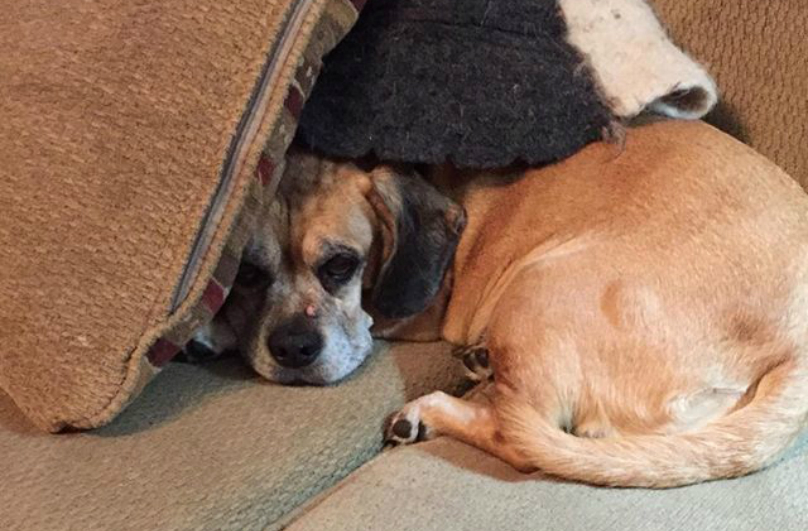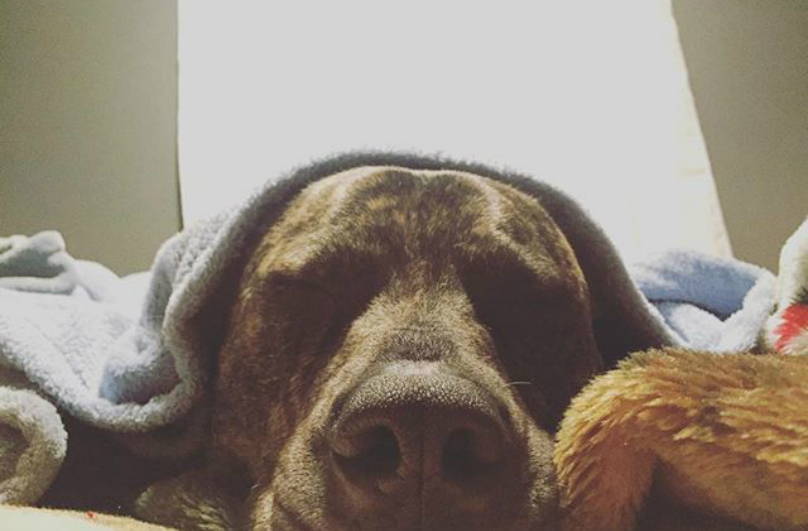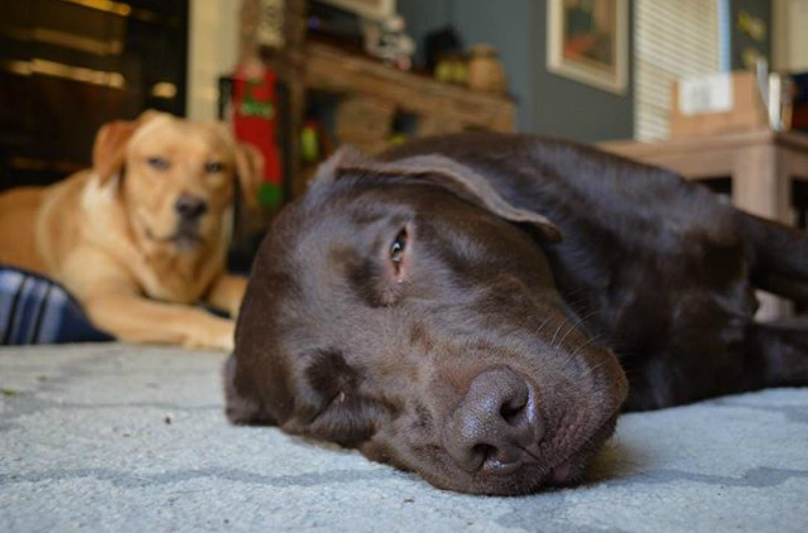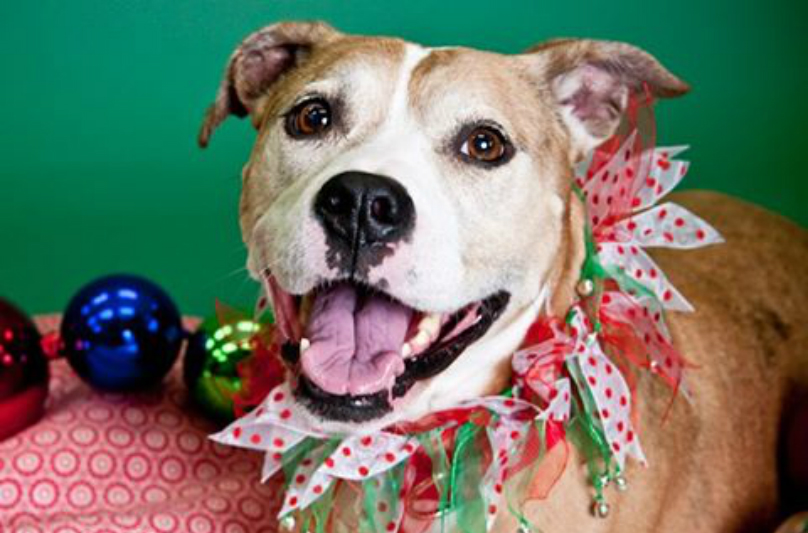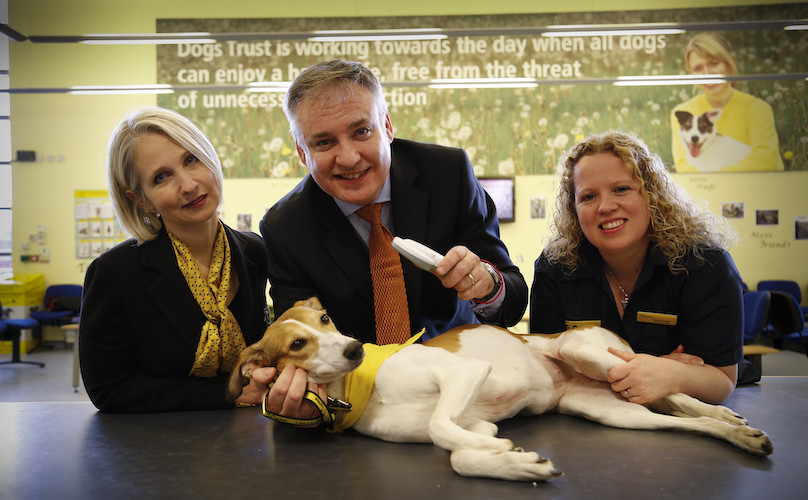As we head into the peak of flu season, you’ve probably heard the recommendations from friends and health professionals to get your flu shot. But maybe you didn’t know that there’s a flu your dog can catch, too. And as it turns out, there’s a flu shot just for your dog. On the one paw, “Yay, science!” But on the other paw, let’s make sure it’s the right fit for your pup.
[bp_related_article]
Canine Influenza
Let’s talk about the Dog Flu real quick, more formally called Canine Influenza (or CI.) It’s not your dog catching the flu from you- it’s two strains of a flu virus that specifically affect our dogs. There are two strains, H3N2 and H3N8- and each was discovered only in the last ten years.
Because the virus is so relatively new, dogs haven’t developed any sort of natural immunity to canine influenza. 4 out of 5 dogs exposed to the flu will develop symptoms, usually a cough and a fever. Most dogs will experience only a mild form of the illness, and recover in 2-3 weeks. Some dogs, on the other hand, may develop severe pneumonia, and about 1 in 10 dogs infected may die.
Canine influenza can spread through the air (coughing, barking and sneezing), by touch (a kennel, a water dish, a leash, etc), or from people who move between infected and uninfected dogs. So far, most cases have shown up in settings where lots of dogs are kept in close quarters: shelters, pet stores, kennels, dog schools. It takes about 2-4 days to show symptoms, after infection; and unsettlingly enough, your dog is most contagious before showing symptoms.
Prevention, Protection, and the Dog Flu Vaccine
So now that we know what’s up, what can we do to protect our dogs from exposure?
There are no super-easy answers. For veterinary facilities and shelters where a dog gets infected, transmission can be contained by practicing disciplined, rigorous standards of cleanliness and quarantining the infected dog for approximately 2-3 weeks while they recover.
There are two H3N8 CI vaccines available, with the first one getting approved by the USDA in 2009. And just last month, the USDA granted a license to Zoetis to market the first commercially availble H3N2 CI vaccine.
The H3N8 vaccine doesn’t prevent infection entirely, but tests have shown that it may significantly reduce the severity and duration of the illness itself. A vaccinated dog that picks up the infection might develop less severe symptoms and is less likely to spread CI to other dogs.
Is It Right For You?
The American Veterinary Medical Association does not recommend the vaccine for every dog. Again, most dogs that have caught the illness are dogs that live or work with high concentrations of other dogs.
If a walk in a bustling dog park is part of your daily routine, you might have use for the vaccine. If your dog is more of a countryside pup with a big yard to himself, you’re probably fine. If your dog got the kennel cough vaccine, the AVMA suggests that the dog flu vaccine might be a good fit, because the at-risk populations are similar.
Dr. Karen Becker points out that the vaccine will not definitively prevent your dog from becoming sick. She also expresses concern that the vaccine would compromise the dog’s immune system, “affecting its ability to protect your dog naturally from pathogens like the influenza virus.”
The AVMA would counter that by arguing that this ability is not yet ingrained in our dogs, since the virus is very new and still developing. They’d also point out that the vaccine is not intended to prevent infection in the first place, but diminish the effects of the sickness.
Side effects of the vaccine are not particularly common, but they’re more likely to affect smaller breeds. The most common side effect is fatigue. Other possible symptoms include fever, vomiting, diarrhea, respiratory distress, facial swelling, pale gums and pain at the site of the injection.
Final Thoughts
Ultimately, whether or not to get the CI vaccine is your choice, but there is someone in your life who will be able to help you make the most educated decision possible. Do you know who that is? Your veterinarian. Always consult with them before taking your dog’s health into your own paws.
Sources
American Veterinary Medical Association
Centers For Disease Control and Protection
Arlington Animal Hospital
International Business Times


